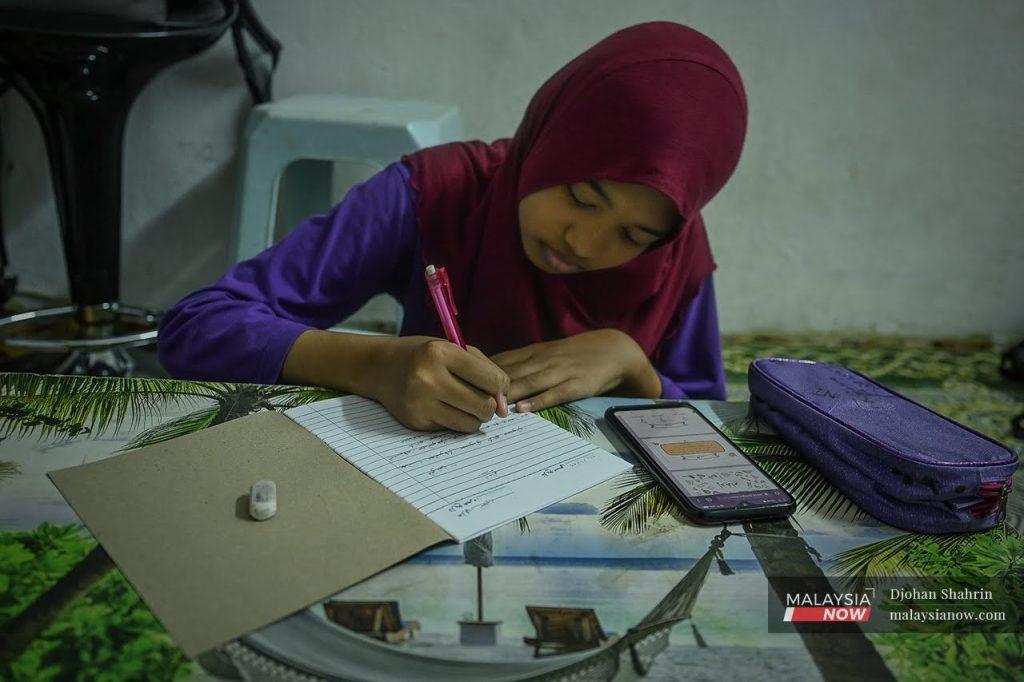Home-based teaching and learning method moderately effective, says education ministry
Urban student involvement in online PdPR was just under 60% while involvement among rural children was at 52.4%.
Just In
The effectiveness of the home-based teaching and learning (PdPR) method among school students is at a moderate level, according to the education ministry.
The ministry, in a written reply to the Dewan Rakyat yesterday, said this was based on the Home-Based Learning Effectiveness Implementation Study conducted online, which focused on the PdPR during the implementation of the movement control order (MCO).
The scope of the study covered aspects of the PdPR’s implementation from March until July last year, including approaches, methods, strategies, applications and tools used, besides the PdPR scheduling, restructuring of annual lesson plans (RPT) and assessments involving 13,156 school administrators, 39,967 teachers, 52,413 students and 59,624 parents and guardians.
“The findings showed the urban student involvement in the online PdPR at 59.3% compared to 52.4% for rural students. For the RPT, 46.2% of urban teachers achieved the implementation target compared to 39.1% of rural teachers.
“A total of 51.2% of students were stressed while learning at home… of this group, 48.9% said they felt stressed due to limited interaction with their teachers, while 55% felt stressed due to limited interaction with their friends and 53.4% were stressed due to the lack of guidance during the learning sessions,” it said in a reply posted on the Parliament website.
It was responding to questions raised by Rubiah Wang (GPS-Kota Samarahan), who asked the education minister to state the achievements of the PdPR system throughout the Covid-19 pandemic in terms of students’ acceptance and achievements, teachers’ complaints and parents’ feedback.
According to the ministry, 56.6% of students succeeded in actively participating in PdPR sessions, while 66% of parents or guardians agreed that the PdPR method was effective for their children’s learning.
In the first quarter of this year, the education ministry also carried out the PdPR Implementation Survey involving 500 schools through observations of PdPR methods implemented online or a combination of online and offline.
A total of 1,053 observations of educators’ teaching and learning methods through the presence of school inspectors in PdPR classes found that 97.4% succeeded in guiding their students to understand the contents, concepts and facts taught.
Subscribe to our newsletter
To be updated with all the latest news and analyses daily.
